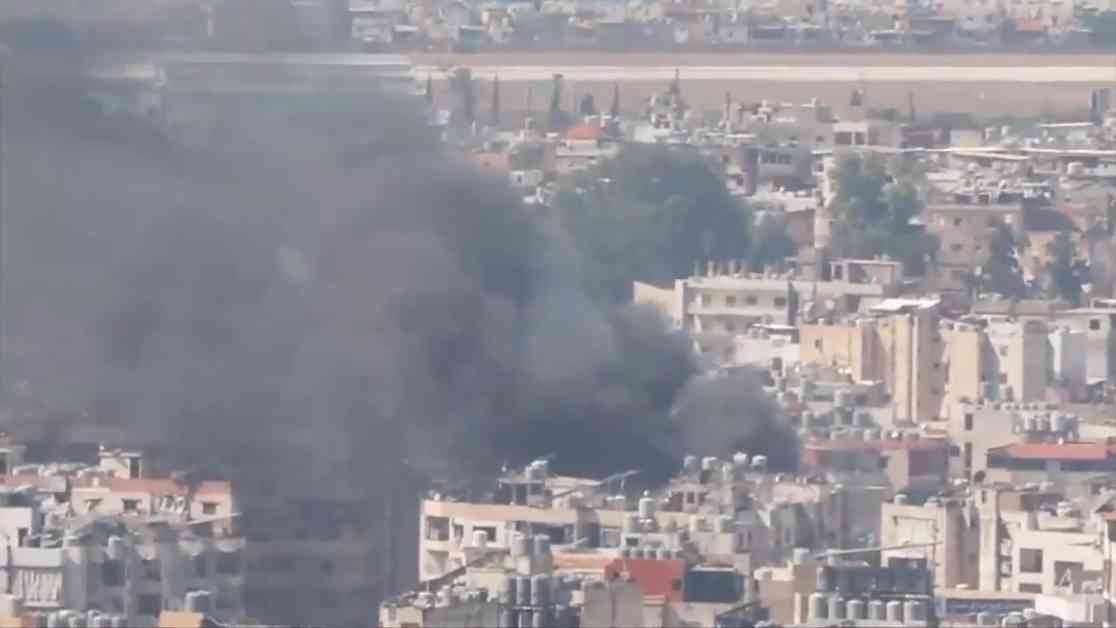Hezbollah Fires Into Israel-Held Area Amid Israeli Strikes in Lebanon: A Fragile Ceasefire Threatened
In a region already marred by conflict and tension, recent events have once again brought violence to the forefront. On Monday, Hezbollah fired into a disputed border zone held by Israel, marking a significant escalation in the fragile ceasefire that had been in place for the past week. This volley, the first by the militant group since the truce was established, was described as a warning shot in response to what Hezbollah called repeated Israeli violations.
Israeli leaders, on the other hand, wasted no time in issuing threats of retaliation, further straining the already delicate ceasefire brokered by the United States and France. The ceasefire aimed to put an end to over a year of conflict between Hezbollah and Israel, which was part of a larger regional conflict ignited by the devastating Israel-Hamas war in Gaza.
Israeli Strikes and Hezbollah Response
In the days leading up to Hezbollah’s attack, Israeli strikes in Lebanon resulted in the deaths of at least four people, with Lebanon’s parliament speaker accusing Israel of violating the ceasefire on more than 50 occasions. According to reports, Israeli strikes were carried out in response to unspecified Hezbollah violations, with Israel asserting its right to retaliate under the terms of the ceasefire agreement.
Hezbollah’s decision to launch projectiles towards Mount Dov, a disputed territory in Lebanon held by Israel, further escalated tensions. While the projectiles landed in open areas with no reported injuries, the action was seen as a clear message from Hezbollah denouncing Israeli actions in the region.
Global Response and Potential Fallout
Officials in the United States, part of the monitoring commission overseeing the ceasefire, downplayed the significance of Israeli strikes, indicating that the ceasefire was largely holding. However, Israeli Prime Minister Benjamin Netanyahu and Defense Minister Israel Katz made it clear that any aggression from Hezbollah would be met with a harsh response.
The ceasefire agreement stipulates a 60-day period for Hezbollah to withdraw its fighters and infrastructure from southern Lebanon while Israeli troops are also expected to pull back to their side of the border. However, recent events have cast doubt on the feasibility of this arrangement, with both sides showing a willingness to engage in further hostilities.
Humanitarian Crisis in Gaza
Amidst the ongoing tensions between Israel and Hezbollah, another crisis looms in Gaza, where increasing hunger and food scarcity have become pressing issues. The amount of food allowed into Gaza has plummeted in recent months, compounded by the halt of aid deliveries due to security concerns.
Muhannad Hadi, the U.N. humanitarian coordinator for the occupied Palestinian Territories, highlighted the severity of the hunger crisis in Gaza, with over 1 million people not receiving their monthly food rations since July. The situation is dire, with families struggling to afford basic food items and facing the threat of famine.
In tent camps across Gaza, displaced Palestinians line up for scarce supplies of bread, with flour shortages making it difficult for bakers to meet demand. The humanitarian situation in Gaza is a stark reminder of the far-reaching consequences of conflict in the region, with innocent civilians bearing the brunt of the violence.
As tensions continue to escalate in the Middle East, the international community faces the challenge of maintaining peace and stability in a region plagued by conflict and humanitarian crises. The events unfolding in Lebanon, Israel, and Gaza serve as a stark reminder of the urgent need for diplomatic solutions and humanitarian aid to alleviate the suffering of innocent civilians caught in the crossfire.


